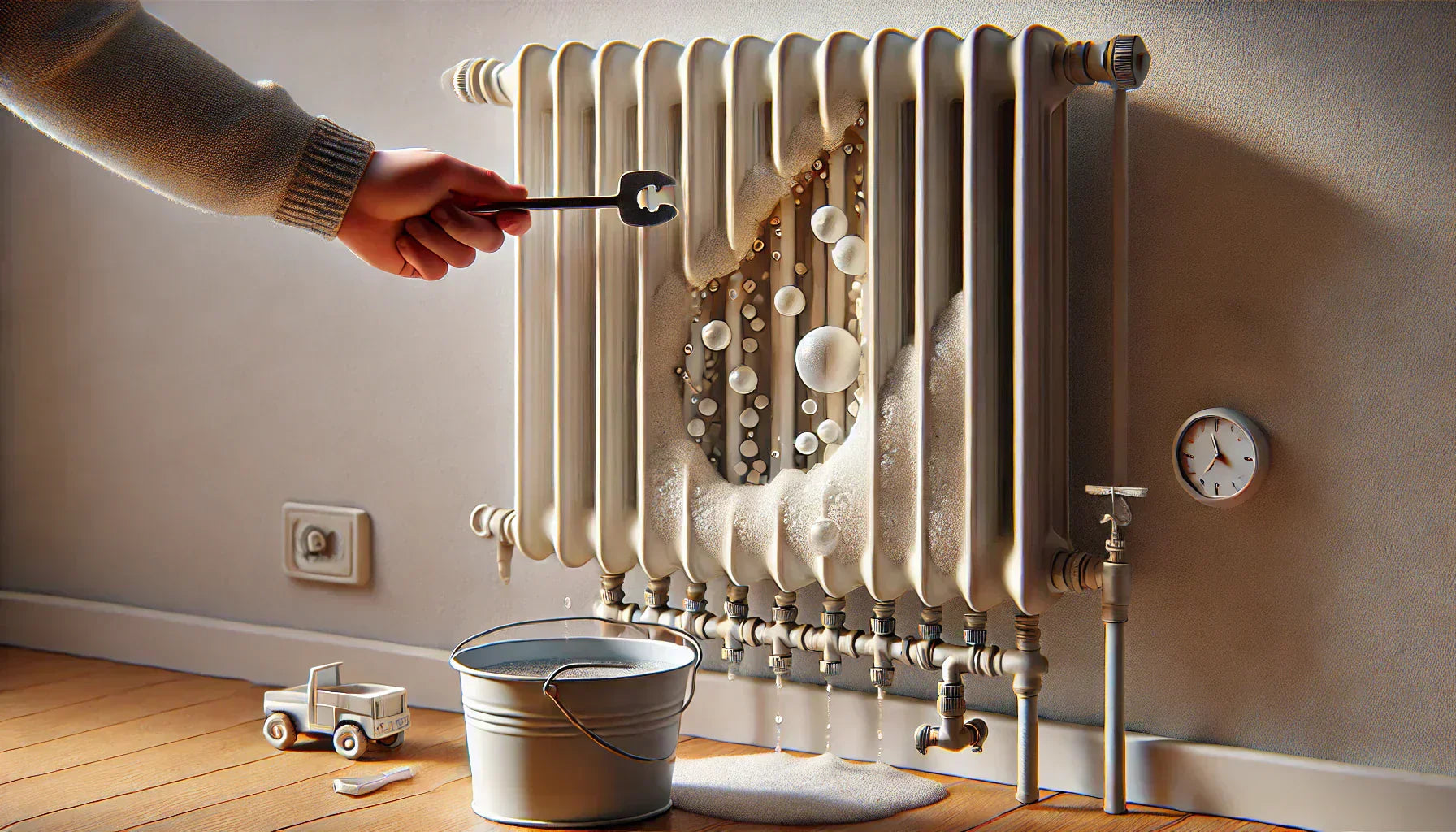Bleeding the heating in 5 steps: how it works

Header-Image: AI-created (ChatGPT/DALL-E)
While we look forward to the warmth of the radiators in the cold season, we are sometimes reminded of them in an unpleasant way: the heating gurgles and knocks. Often it does not heat up as desired. Many people know that now is the time to bleed the air. But what is the best way to do this? What else is there to do? And what should you do if the heating doesn't get warm despite bleeding? This article reports on this.
Why it is important to bleed the heating system
The reason for the typical condition is often air bubbles in the heating system, which means that heat can no longer be distributed properly: water normally flows through an ordinary radiator. This conducts heat much better than air. If there is air in the radiator, it often heats up unevenly - the radiator works inefficiently.
It is easy to want to compensate for the radiator remaining cool with a higher setting on the thermostat. This can quickly drive up heating costs. This can be remedied by regular bleeding. The heating performance can be improved again and energy is saved.
When the heating system should be bled
There are clear indications that there is air in the heating system and that it is time to bleed the heating:
- Gurgling, knocking noises in the radiator
- Radiators that remain partially or completely cold due to uneven heat distribution
Even a high setting on the thermostat does not result in a radiator that is usually warm.
How often is bleeding necessary?
In addition to bleeding when it is acutely necessary, it is also helpful to bleed before the start of the heating season. This ensures that the radiators function largely without problems before they are put into operation for the season. However, how often bleeding is necessary also depends on the type of heating system in question:
| Heating type | This is how often bleeding is recommended |
|---|---|
| Modern heating system | Especially when required |
| Central heating | If possible, every year before the start of the heating season |
| Underfloor heating | Every second year |
How bleeding works
The following five steps are suitable for bleeding the heating system:
- First, you should take a bucket and a bleed wrench, which you can find at a DIY store, for example.
- Make sure that the heating system, including the circulation pump, is switched off.
- Now it's time to bleed the air. The bleed valve is usually located on the opposite side of the thermostat and has a bleed plug. Insert the bleed key into it. Next, slowly open the valve until you hear the air escaping
- Use the bucket to catch any escaping water. Close the valve again as soon as water escapes. To prevent water loss, the valve should not be opened too much. Most of the air should now have escaped.
- Finally, you should check the pressure of the heating system and top up with water if necessary.
Tip: It is best to wait about an hour after switching off the heating before bleeding it. You can also protect yourself from possible burns by wearing gloves.
No improvement despite correct procedure?
If the heating system does not heat up despite being bled, there may be the following reasons, among others:
- There is too little water in the pipes - heating water should be topped up.
- The valve pin involved in the water supply to the radiator is stuck - it needs to be loosened.
- Deposits in the pipes of the heating system are blocking the circulation - a specialist should remove them.
- The heating pump is defective - it should be replaced by a specialist.
The Bitcoin heating system from 21energy is a heating system that does away with conventional ventilation and many other inconveniences. In its mode of operation, it surpasses the usual physical principles of heating. In addition to heating, it makes it possible to generate income at the same time in an innovative way Bitcoin miners mine Bitcoin and the waste heat generated in the process is used efficiently for heating. This allows costs to be saved or even profits to be made while the home is heated with minimized energy loss.
Ofen 2 kort fortalt


Ofen 2
(Ø 1 år)
Pr. 01.2026
(Ø 4 år)
Pr. 01.2026
Conclusion: It's all about the right care
Correct venting, like regular maintenance, helps to ensure and maintain the functionality of a classic heating system. It is also important in terms of heating costs and energy efficiency. With the right steps, you can bleed your heating system yourself. Or you can bypass the repetitive process directly and opt for a modern alternative such as the Bitcoin heating system from 21energy to benefit financially. You can easily find out how much you can save with this profitability calculator.
Beregn dine årlige besparelser på oppvarming
Send forward
Your share can inspire countless others.





















































